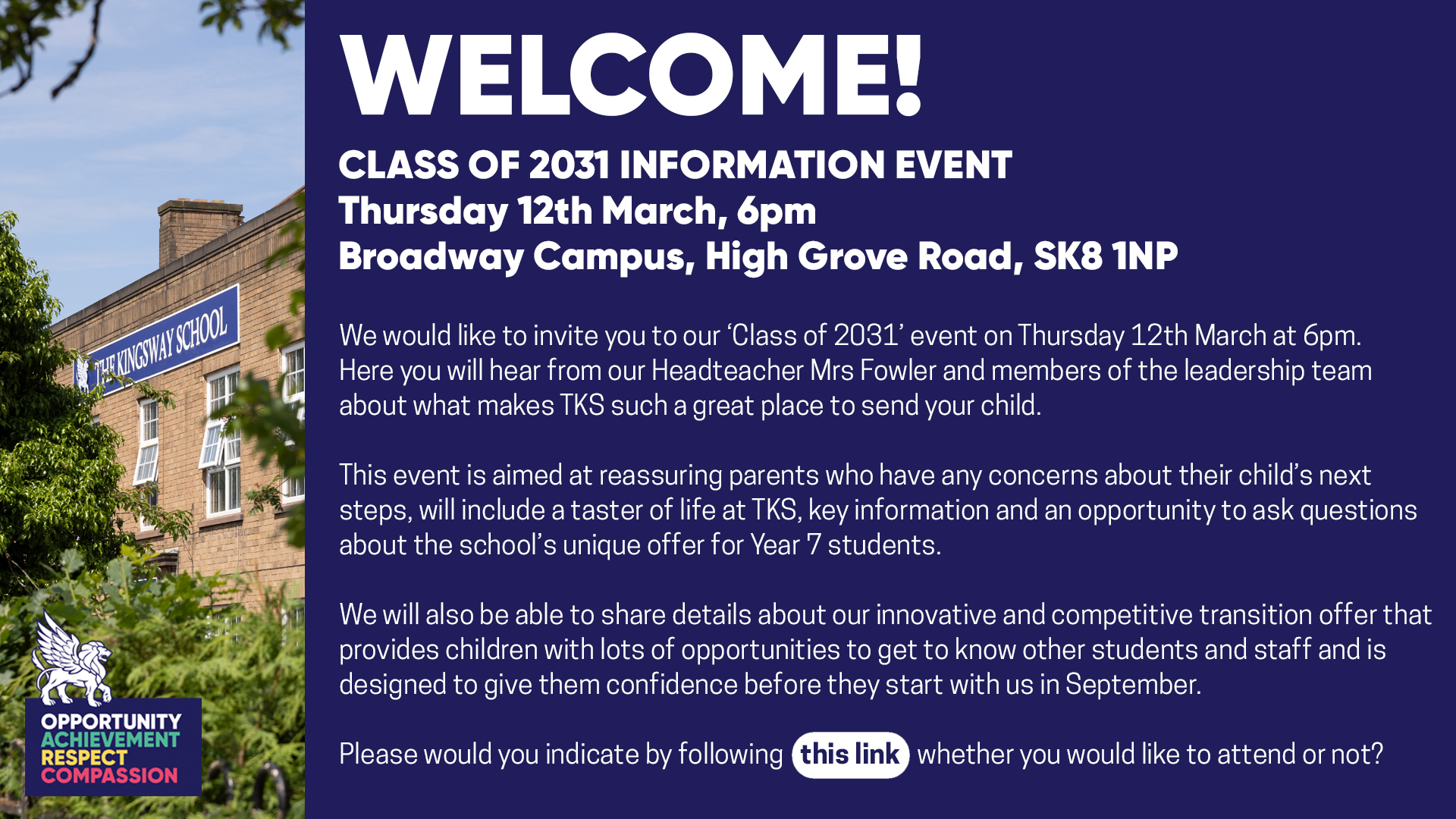Contact
Head of Department: Ms L. Hughes
l.hughes@kingsway.stockport.sch.uk
Geography Curriculum Intent
At TKS, we believe the study of geography is important because it is, in the broadest sense, an education for life and for living. Learning through geography, whether gained through classroom lessons or experientially through fieldwork, helps us all to be more socially and environmentally sensitive, better informed, and more responsible as global citizens.
The foundations of geography are built on a fundamental understanding of how geographical processes interact to create distinctive human and physical landscapes that change over time.
The core knowledge that learners are expected to acquire in the geography curriculum is Locational knowledge, from the local to global scale, deepening students’ spatial awareness of the world’s countries. Place knowledge, Understanding the geographical similarities, differences, and links between places. Environmental, human and physical geography for example, climate change, migration and river landscapes.
Learners are then expected to apply this knowledge by considering: Space and place, understanding that places are not isolated but connected to other places and explaining these connections. Scale and connection, explaining how decisions and events at a local level can have global consequences; and global processes can have different effects locally considering key stakeholder viewpoints. People and environment, understanding how human and physical processes interact to influence, and change landscapes, environments and climates creating both opportunities and challenges. Geographical skills and fieldwork, Interpreting a wide range of geographical sources of evidence such as maps, photographs and graphs as well as collecting, analysing and drawing conclusions from geographical data through fieldwork.
Our geography curriculum is aspirational because so many employers prize the knowledge and skills that studying the subject can provide, be it knowing how the world works, planning research and report writing, working in a team, using new technologies and communication skills. Geographers can be found working in a wide range of jobs such as urban planning, environmental conservation, travel and tourism as well as the retail sector. Studying geography can help young people achieve careers that are professionally and financially rewarding, but most importantly, enjoyable. We nurture learners’ curiosity through Problem solving, from mitigating climate change to managing desertification in Sub-Saharan Africa, students are given the opportunity to select possible solutions from a range of potential strategies. Critical thinking, Identifying strengths and weaknesses in approaches to global issues. Geographical fieldwork, Collecting primary data to develop a deeper sense of place.
In addition to this, pupils are given opportunities for rich discussion around a range of current issues facing our local area as well as significant global issues. The interactive nature of discussions is crucial to give students alternative perspectives and to require them to engage with the views of others. Through exploratory talk students explore, question and revise geographical ideas.
As part of the geography curriculum, learners are provided with a range of high-quality academic texts with the aim of teaching subject content while introducing and reinforcing ambitious vocabulary, modelling reading comprehension and improving writing skills.
We also support pupils to be compassionate and keep each other safe by developing an appreciation of the differences and similarities between people’s views of the world, its environments, societies and cultures. As students learn more about their peers around the world, they build cultural empathy and compassion for others, whether they live across the globe or are sitting next to them in the classroom.
Our geography curriculum is inclusive and celebrates differences because our curriculum provides the same academic ambitions. All students are encouraged to develop their sense of responsibility as a global citizen and recognise how they can contribute to a future that is sustainable and inclusive for all.
Beyond our classrooms, we provide meaningful enrichment opportunities such as the Bronze Duke of Edinburgh Award programme as well as field visits to rural and urban locations that aim to improve students’ ability to work independently and collaboratively. Learning outside the classroom is important for all young people if they are to connect with their local place, find a relevance for the classroom-based learning and develop a meaningful understanding of how environments are continually influenced by physical and human factors.
Fundamentally, the study of geography at The Kingsway School will enable students to deepen their knowledge and understanding of powerful geographical knowledge, whilst enabling them to use a range of skills for them to be able to make sense of the world around them. Students will learn in depth about key geographical regions so that they are able to articulate how the world is changing and how regions are developing to become significant to life in the 21st century.
Geography KS3 Progression Grid
Geography Milestone Knowledge Trackers
